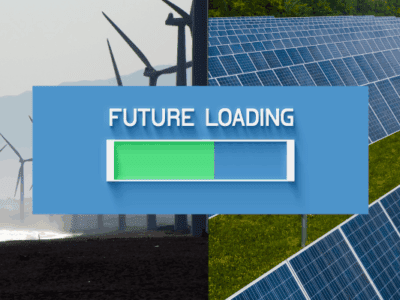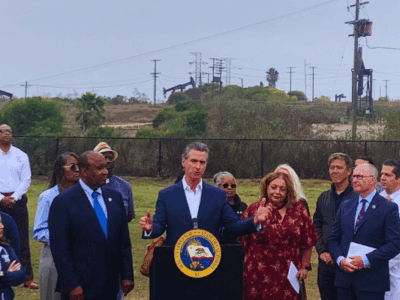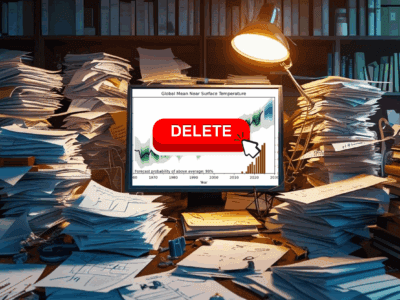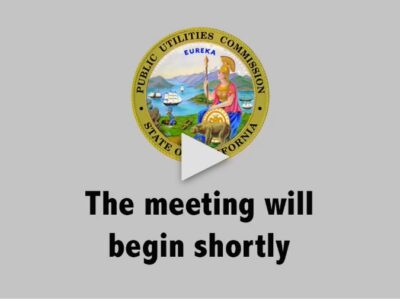Energy
Lighting Candles in Dark Times: Environmental Law Centers in the Trump Era
These law school centers show it’s possible find ways to make a difference.
Environmental law have become vibrant parts of the law and policy ecosystem. At a time when despondency seems all too common, the work of these law school centers offers beacons of hope for the future of environmental protection. Some of that work is playing defense — pushing back against deregulatory efforts — while other work plays offense by identifying innovative directions for environmental policy. A comprehensive survey isn’t practical, but I’ll provide examples from several different centers.
CONTINUE READINGLearning from the Laureates
The 2025 Economics Prize, Technological Innovation, and the Energy Transition
In energy technology as elsewhere, Trump is hobbling American science with budget cuts and demands for political submission. The epitome of his approach is the decision to give political appointees rather than experts the ultimate decision on each project, replacing scientific merit with politics as the deciding factor. His war on science is also a war on future economic growth. And his effort to halt creative destruction is the pathway to a stagnant economy. By trying to prop up an incumbent industry threatened by new technologies, he’s undercutting a central driver of economic growth.
CONTINUE READINGSolar and Wind are Winning
Two energy reports out this week paint a clear picture of the future that may await us.
Industrial policy moves slowly. Sometimes it takes months or years to understand the trajectory of global energy trends. Picture an oil tanker that requires a herculean effort just to shift course by a small degree — that’s what energy policy feels like much of the time. But then sometimes, you get a glimpse of the …
Continue reading “Solar and Wind are Winning”
CONTINUE READINGThe perils of federal abundance legislation
Political polarization at the federal level is a steep obstacle to any major abundance reforms
I recently wrote an assessment of the ROAD Act, a bill in the US Senate that would do some (mild) changes to NEPA and develop some guidelines and incentives for state and local governments to amend their zoning to facilitate more housing production. While the ROAD Act may be fine policy, one question is whether …
Continue reading “The perils of federal abundance legislation”
CONTINUE READINGCalifornia Takes a Stab at Climate and Energy Costs
The Drain is a weekly roundup of environmental and climate news from Legal Planet.
It’s remarkable that with everything else that’s raging, climate and energy bills still managed to dominate the legislative session that just wrapped in Sacramento. After all, the reason lawmakers were still at work this past Saturday — the day after the legislative session was supposed to end — was that negotiations on climate bills pushed …
Continue reading “California Takes a Stab at Climate and Energy Costs”
CONTINUE READINGCalifornia Must Invest in Climate and Communities to Drive Climate Progress
The state has pioneered an approach—what’s worked, and what’s next?
As solar and other climate infrastructure construction accelerates, and with Californians concerned both about the cost of living and about seeing local opportunities result from climate projects, the conversation about community benefits (commitments to hiring and other local investments made by developers in connection with new projects) has grown increasingly animated in California and even …
Continue reading “California Must Invest in Climate and Communities to Drive Climate Progress”
CONTINUE READINGHow to Dissent? Learn American History
The Drain is a weekly roundup of environmental and climate news from Legal Planet.
It sounds cliché, but when you face a crisis, it helps to remember times that you’ve overcome adversity. That’s the power of history. And it’s one of the reasons I think the new PBS documentary “Clearing the Air: The War on Smog” is crucial to share right now. In the 1940s, dark, smoky clouds crept …
Continue reading “How to Dissent? Learn American History”
CONTINUE READINGThe Energy Secretary Pushes Pseudoscience
The Drain is a weekly roundup of environmental and climate news from Legal Planet.
Remember alternative facts? That catch phrase from Season 1, Episode 1 where Trump officials lied about the size of his inauguration crowd has now metastasized into a governing philosophy for how federal agencies plan to ignore, and ultimately exacerbate, the climate crisis. Trump 2.0 is pushing alternative science. Late last month, Energy Secretary Chris Wright …
Continue reading “The Energy Secretary Pushes Pseudoscience”
CONTINUE READING“Hi, Can you Hear Me?” A CPUC Debrief
The California Public Utilities Commission heard an earful about neighborhood decarbonization. Here’s the input from Californians who support climate action.
More people who want climate action should attend public forums like the ones that the California Public Utilities Commission held last Thursday regarding the selection of neighborhood decarbonization projects. More of us should sit on these calls and sign up to speak. Even if we aren’t party to a specific proceeding or don’t feel expert …
Continue reading ““Hi, Can you Hear Me?” A CPUC Debrief”
CONTINUE READINGCan Residential Electrification Support Energy Affordability?
New UCLA report illustrates potential savings across household types and energy upgrade scenarios, write guest contributors Rachel Sheinberg and Lauren Dunlap.
As the L.A. City Council considers repealing the city’s All-Electric Building Ordinance, reacting to the 2023 decision in California Restaurant Association v. Berkeley, new UCLA research suggests that electric buildings can save LA households hundreds of dollars each year on energy bills. Over the past decade, Los Angeles city leadership has put forth a suite …
Continue reading “Can Residential Electrification Support Energy Affordability?”
CONTINUE READING












